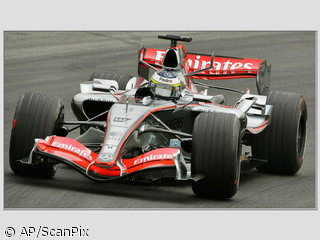Idea of "total war" redefined the conduct of armies against foreign populations in the mid-20th century.
Published:
13 December 2000 y., Wednesday
The Internet now offers people the opportunity to communicate with others around the world almost as if they were neighbors.
Through the Internet, people can gain access to local papers in the native language or dialect, browse personal Web sites, listen to local radio stations talking about local concerns and even watch everyday life unfold via thousands of Web cams pointing at everything from street corners to gold fish bowls.
The Internet, after all, was designed by the U.S. military for war, as a way to maintain communication networks even in the case of a massive attack. The distributed nature of the Internet makes this possible.
This distribution of nodes and centers of control may in fact redefine some of our most basic notions of war in much the same way that the idea of "total war" redefined the conduct of armies against foreign populations in the mid-20th century.
The idea of cyberwar does offer considerable appeal to any military capable of establishing such a program. After all, wars are messy and people, especially when confronted with the visual images of war, tend to have a negative disposition toward these activities.
Cyberwar, on the other hand, offers the possibility of "cleaning" war up a bit with no bombs (or perhaps much fewer bombs), no direct "collateral damage" and really no center of attention to videotape. Ironically, while cyberwar has the potential of being everywhere all at once it also offers the ability to defocus the conduct of war to the point where it may almost appear invisible.
The effectiveness of cyberwar depends on two factors. The first is the degree to which a nation's life-support system is connected electronically. And second, it depends on the ability of the aggressor to collect, process and ultimately redirect massive amounts of information.
Šaltinis:
yomiuri.co.jp
Copying, publishing, announcing any information from the News.lt portal without written permission of News.lt editorial office is prohibited.
The most popular articles
Software company announced new structure_ of it_s business.
more »
 The Self-Service and Kiosk Association has published its 2009 Self-Service Consumer Survey, a comprehensive report that reveals what consumers like and dislike about self-service technology — and what they want more of.
more »
The Self-Service and Kiosk Association has published its 2009 Self-Service Consumer Survey, a comprehensive report that reveals what consumers like and dislike about self-service technology — and what they want more of.
more »
 Private investors should hold up to 15 percent of their wealth in physical gold, according to a German asset-management company that plans to set up 500 "Gold-To-Go" ATMs in Germany, Switzerland and Austria sometime this year.
more »
Private investors should hold up to 15 percent of their wealth in physical gold, according to a German asset-management company that plans to set up 500 "Gold-To-Go" ATMs in Germany, Switzerland and Austria sometime this year.
more »
 ATM and debit card theft is expected to grow 10 percent to 14 percent this year, according to a survey of financial institutions that was released today.
more »
ATM and debit card theft is expected to grow 10 percent to 14 percent this year, according to a survey of financial institutions that was released today.
more »
 Built from potatoes, steered with carrots and powered by chocolate.
more »
Built from potatoes, steered with carrots and powered by chocolate.
more »
 Students at a Tokyo elementary school are waiting quietly for a "special lecturer" in science class. But when they see "Saya", a robot relief teacher, the kids are pleasantly surprised.
more »
Students at a Tokyo elementary school are waiting quietly for a "special lecturer" in science class. But when they see "Saya", a robot relief teacher, the kids are pleasantly surprised.
more »
 This week - the New York Times announced a deal with e-commerce giant Amazon timed to the release of its latest Kindle e-book device.
more »
This week - the New York Times announced a deal with e-commerce giant Amazon timed to the release of its latest Kindle e-book device.
more »
 Wincor Nixdorf AG and NICE Banking, an independent ATM deployer in South Korea, have partnered to grow a network of ATMs at sites owned by the country's top communications provider, Korea Telecom.
more »
Wincor Nixdorf AG and NICE Banking, an independent ATM deployer in South Korea, have partnered to grow a network of ATMs at sites owned by the country's top communications provider, Korea Telecom.
more »
 “The telecoms package has never been about anything to do with restrictions on the internet,” Malcolm Harbour told us ahead of Parliament's debate Tuesday on the telecoms package, which aims to reform the existing European electronic communications framework.
more »
“The telecoms package has never been about anything to do with restrictions on the internet,” Malcolm Harbour told us ahead of Parliament's debate Tuesday on the telecoms package, which aims to reform the existing European electronic communications framework.
more »
 On 20 April 2009 the Prague Congress Centre will host a ministerial conference Safer Internet for Children, which is organised by the Ministry of the Interior in cooperation with the European Commission.
more »
On 20 April 2009 the Prague Congress Centre will host a ministerial conference Safer Internet for Children, which is organised by the Ministry of the Interior in cooperation with the European Commission.
more »
 Payment card breaches in 2008 led to the most compromises and security breaches of record in the last four years, according to a new report from Verizon Business.
more »
Payment card breaches in 2008 led to the most compromises and security breaches of record in the last four years, according to a new report from Verizon Business.
more »